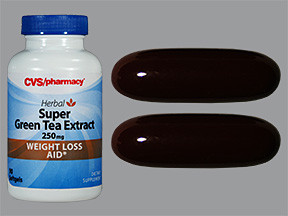GREEN TEA (Camellia sinensis) - ORAL
PHONETIC PRONUNCIATION:
GENERIC NAME(S): green tea leaf extract
Uses
USES: Green tea contains caffeine and it has been used to increase alertness. Green tea has also been used to reduce the risk of cancer, to lower cholesterol, and to reduce the risk or delay Parkinson's disease. Some herbal/diet supplement products have been found to contain possibly harmful impurities/additives. Check with your pharmacist for more details regarding the particular brand you use. The FDA has not reviewed this product for safety or effectiveness. Consult your doctor or pharmacist for more details.
How to use GREEN TEA (Camellia sinensis) - ORAL
HOW TO USE: Take this product by mouth as directed. Follow all directions on the product package. If you are uncertain about any of the information, consult your doctor or pharmacist. If you suddenly stop using this medication, you may have withdrawal symptoms (such as headache, mental/mood changes such as irritability/nervousness). To help prevent withdrawal, your doctor may lower your dose slowly. Withdrawal is more likely if you have used green tea for a long time or in high doses. Tell your doctor or pharmacist right away if you have withdrawal. This product can decrease the amount of iron you get from food/supplements. If you have low iron levels, do not take green tea with meals or iron supplements. Take this product between meals. If your condition persists or worsens, or if you think you may have a serious medical problem, seek immediate medical attention.
Side Effects
Precautions
Interactions
Overdose
Images
Reviews
Faq for GREEN TEA (Camellia sinensis) - ORAL
Green tea is a type of tea made from the leaves of Camellia sinensis plant. It differs from other types of tea because it undergoes minimal oxidation during processing.
Green tea is rich in antioxidants, which help to protect the body against free radicals and reduce the risk of chronic diseases. It is also known to boost metabolism, aid in weight loss, improve brain function, lower the risk of certain types of cancer, and promote heart health.
To prepare green tea, pour hot water (not boiling) over green tea leaves or a tea bag, and steep for 1-3 minutes. Strain or remove the tea bag, and it is ready to be consumed. It can be consumed hot or cold, with or without sweetener.
Yes, green tea contains caffeine but in lesser amounts compared to coffee. On average, a cup of green tea contains approximately 20-45 mg of caffeine, while a cup of coffee contains about 95 mg.
The recommended daily consumption of green tea varies, but most experts suggest drinking 2-3 cups (240-360 ml) per day to obtain its health benefits.
It is generally considered safe to consume moderate amounts of green tea during pregnancy or breastfeeding. However, it is advisable to consult with a healthcare professional for personalized advice.
While green tea is generally safe for most people, excessive consumption may lead to side effects such as insomnia, irritability, upset stomach, or increased heart rate. It may also interact with certain medications, so it is important to consult with a healthcare professional if you have any concerns.
Green tea has been found to potentially aid in weight loss due to its ability to increase metabolism and fat oxidation. However, it is not a magic solution and should be combined with a healthy diet and regular exercise for the best results.
Green tea is generally safe for individuals with high blood pressure as it has been shown to potentially lower blood pressure. However, if you have any specific health concerns, it is best to consult with a healthcare professional before making any changes to your diet.
Green tea has been known to offer numerous health benefits. It is rich in antioxidants, which can help protect against cell damage and lower the risk of chronic diseases. It may also promote weight loss, boost brain function, improve heart health, and reduce the risk of certain types of cancer.
The recommended amount of green tea consumption varies, but most studies suggest drinking 2-3 cups per day to reap its health benefits. It is important to note that green tea also contains caffeine, so excessive consumption should be avoided, especially in sensitive individuals.
Although moderate green tea consumption is generally considered safe during pregnancy, it is advisable to consult with your healthcare provider for personalized advice. It is recommended to limit caffeine intake during pregnancy, as high levels may be harmful to the baby.
Green tea can be prepared by steeping tea leaves or tea bags in hot water (around 160-180°F or 70-82°C) for a few minutes. It is important not to use boiling water to prevent a bitter taste.
Yes, green tea can be enjoyed both hot and cold. Cold green tea can be made by brewing it and then chilling it in the refrigerator or by using green tea bags specifically designed for cold brewing.
Disclaimer
IMPORTANT: HOW TO USE THIS INFORMATION: This is a summary and does NOT have all possible information about this product. This information does not assure that this product is safe, effective, or appropriate for you. This information is not individual medical advice and does not substitute for the advice of your health care professional. Always ask your health care professional for complete information about this product and your specific health needs.

No Reviews Yet